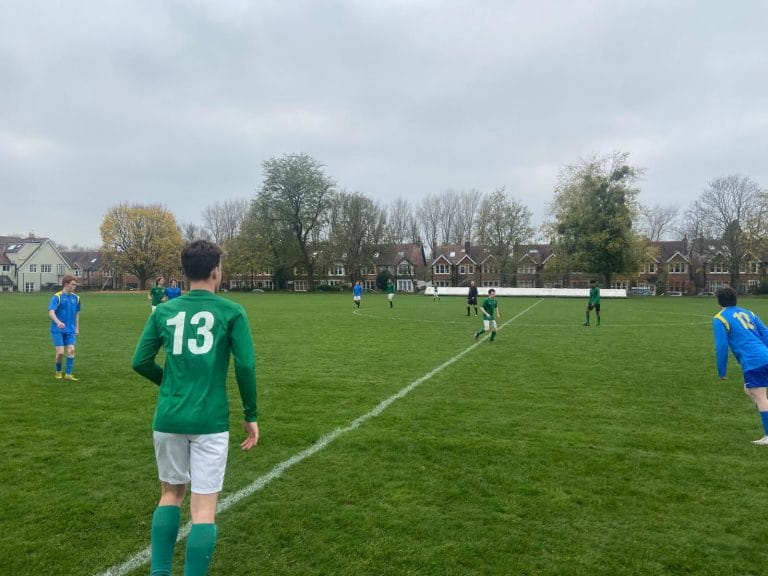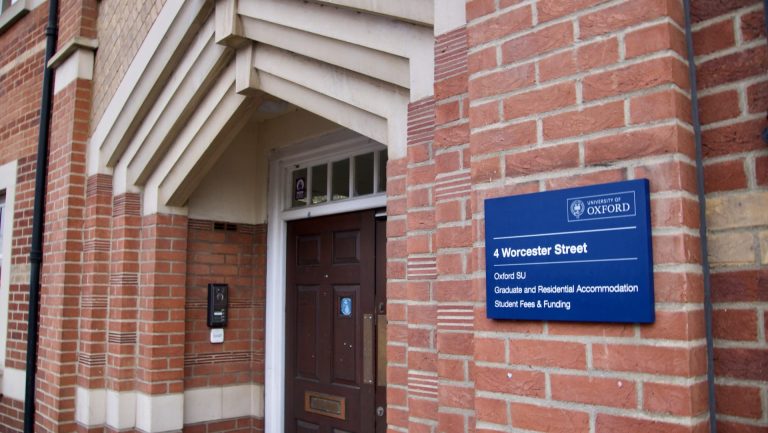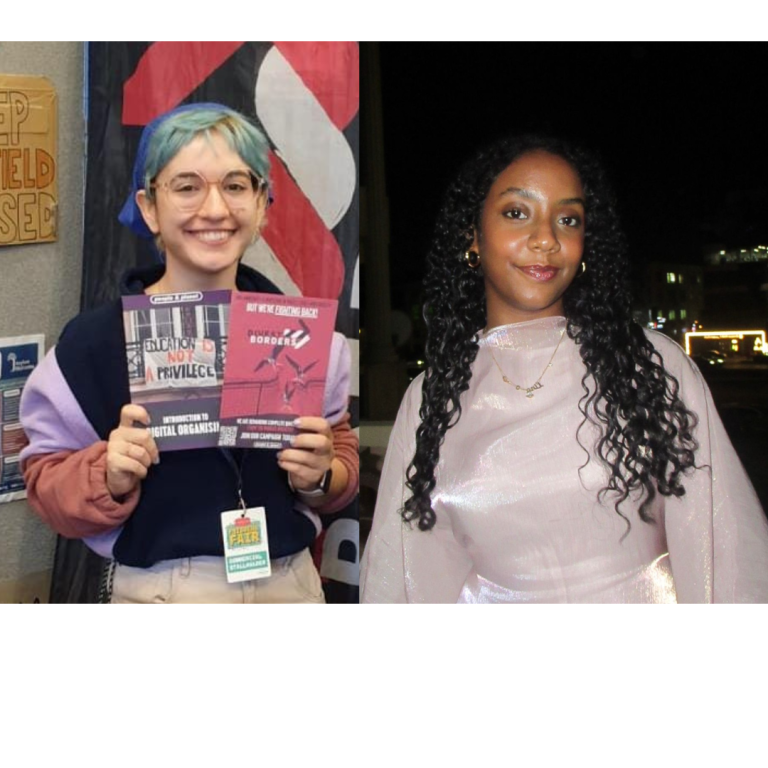CW: Discussion of transphobia
Oxford University is facing backlash for a string of events featuring “gender-critical” speakers, including journalist Helen Joyce and Professor Michael Biggs. Oxford University LGBTQ+ Society (OULGBTQ+ Society) alongside several college common rooms have issued statements against this, condemning “the University repeatedly elevating anti-trans campaigners without meaningful opposition, in contradiction to its own equality policies.”
Department of Sociology
Yesterday, Biggs was hosted as part of the Department of Sociology’s seminar series to mark LGBTQ+ History Month. An Associate Professor of Sociology and Fellow at St. Cross College, Biggs discussed his article arguing that the 2021 Census of England and Wales overestimated the number of trans people due to “the census question confus[ing] a substantial number of respondents.”
In 2018, Biggs was found by The Oxford Student to be posting anti-trans propaganda online under the persona ‘Henry Wimbush’. Currently, he is an advisor for SEGM who aim “to promote safe, compassionate, ethical, and evidence-informed healthcare for children, adolescents, and young adults with gender dysphoria.” SEGM has been labelled as an “anti-trans” society by different organisations and individuals and in 2023, the Southern Poverty Law Centre added it to its list of anti-LGBTQ+ hate groups.
College JCRs have issued notices condemning the Department of Sociology’s decision to host Biggs and calling for the event to be cancelled. Merton College JCR released a statement saying: “We believe that Professor Michael Biggs has proven himself an inappropriate speaker for an LGBTQ+ History Month event, for such an event would allow him to spread misinformation to a wider audience..”
St Catherine’s College also passed a statement condemning the decision “to host an active transphobe” and called on the Department of Sociology “to not provide a platform to life threatening rhetoric that infringes upon not only the University’s own official policy, but also The Gender Recognition Act and The Equality Act.”
Jasper Hopkins, an LGBTQ+ Representative of the College, further expressed concern over Biggs’ opinions, posted online under the persona ‘Henry Wimbush’, that “letting trans people transition and access medical care is actually an act of control ‘disguised as diversity’.” Hopkins told Cherwell: “Whilst I recognise and respect his advocating for academic debate, this hesitation around ‘diversity’ is concerning coming from the Department of Sociology’s Disability Lead.”
In response, OULGBTQ+ Society described the University’s decision to host Biggs as “wildly inappropriate”. The Society is hosting a panel to mark LGBTQ+ History Month, encouraging students to boycott Bigg’s talk in favour of attending the panel. This event aims to “counterbalance the negative impact of (Bigg’s) talk” by providing a “positive opportunity for trans and non-binary academics to share their research with a wider audience.”
Balliol College Philosophy Society
Balliol College’s Philosophy Society’s upcoming event with Helen Joyce has provoked a similar reaction among the student population. The talk titled ‘Everything you always wanted to know about Sex (and Gender)* *but were afraid to ask’ [sic], taking place this Thursday 13th February, will involve discussion of questions surrounding transgender activism raised in Joyce’s book ‘Trans: When Ideology meets Reality’, which was shortlisted for the 2023 John Maddox Prize.
Joyce, journalist for The Economist, has sparked controversy in the past for her sex-realist views, with Pink News revealing in 2022 that she had spoken in favour of “keeping down the number of people who transition.” That same year, students protested against her giving a talk at Gonville and Caius College, Cambridge University. Joyce stated on X that she would be “particularly pleased to see people who disagree with me turn up and debate civilly.”
Students at Balliol College have voiced their disapproval towards this event with plans for the MCR to pass a statement condemning the College’s decision to host the talk. A student at Balliol told Cherwell that the College had directed students to welfare resources to express their concerns but described it as “paradoxical that the College thinks they can fix things by giving welfare for the trauma their own decisions are causing.”
OULGBTQ+ Society stated: “Balliol’s elevation of Joyce’s views by agreeing to let her use their space directly contradicts their own equality policy…We have requested that Balliol clarify whether their equality policy is still in place as well as their position on trans inclusion at the College.”
John Maier, a DPhil student who convenes the Philosophy Society, told Cherwell in response: “Helen Joyce’s allegedly-controversial theory that women are adult human females is arguably the natural default view in the philosophy of sex and gender. The notion that this position is not only false, but so dangerous that it cannot be safely expressed, must be one of the silliest ideas to have gripped public life in recent years. Helen and I urge her opponents to attend the event and present their own arguments, as is the disciplinary norm in philosophy and academia more generally.”
The Master of Balliol College told Cherwell in response: “The event has been organised by a student society. As an academic institution within the University, the College saw no grounds to refuse permission for the talk to take place. Freedom of speech allows views expressed to be tested through argument and debate. The same would apply to a similar event with a speaker of a different view. We understand the strength of feeling on the sensitive issues involved and will continue to offer welfare support to any students affected.”
Oxford Literary Festival
Oxford Literary Festival will also be hosting Joyce alongside radical feminist writer Julie Bindel in a sold-out event at the Sheldonian Theatre. The Festival is independent from the University of Oxford but is sponsored and associated with several University departments, Oxford colleges, and the Bodleian Libraries.
Bindel, co-founder of Justice for Women, a law reform group aiming to help women persecuted for assaulting violent male partners, has been criticised for her belief that gender reassignment surgery only reinforces gender stereotypes.
The talk is expected to feature “an analysis of a world in which biological sex is no longer accepted as a fact of life.” In response to this event, the Oxford Literary Festival has received backlash online and early modern literature lecturer Dr Harry R. McCarthy announced his withdrawal from his scheduled event due to Joyce and Bindel’s inclusion in the programme. The Festival received similar criticism last year for hosting gender-critical sportswoman Sharron Davies.
OULGBTQ+ Society has called for the University to “enforce its (equality) policy with regard to events it promotes and provides space for, and ensures that trans and non-binary people are afforded fair and equal opportunities to speak for ourselves.”
A University spokesperson told Cherwell: “The University policy on free speech states: ‘Within the bounds set by law, all voices or views which any member of our community considers relevant should be given the chance of a hearing. Wherever possible, they should also be exposed to evidence, questioning and argument.’
“All University events follow this policy. In the case of the Sociology LGBTQ+ seminar series, which is convened by members of the LGBTQ+ community, Dr Biggs is an associate professor in the Sociology department and is presenting, and can be questioned, on his own academic research which is highly relevant to the theme of LGBTQ+ history. The University has also provided platforms during LGBT+ History Month for speakers, including trans speakers, with a range of perspectives on trans issues, and would welcome further such events organised by University members. Examples of past speaker events include: LGBT+ History Month lecture 2024; LGBT+ History Month lecture 2023.
“Equality, diversity and inclusion (EDI) are integral to Oxford’s mission and success as a university. Our commitment to EDI sits alongside our commitment to freedom of speech and academic freedom.
“The Oxford Literary Festival is separate from Oxford University and organises its events independently.”
Cherwell has contacted Biggs, Bindel, and the Oxford Literary Festival for a response.
Full statement from the Oxford LGBTQ+ Society:
CW: TRANSPHOBIA, CONVERSION THERAPY, BIPHOBIA, INTERSEXISM
As an LGBTQ+ welfare society, we feel compelled to speak out about a pattern of the university repeatedly elevating anti-trans campaigners without meaningful opposition, in contradiction to its own equality policies, while simultaneously misappropriating the name of our community for marketing purposes.
On Monday, the Department of Sociology is planning to host a talk by Professor Michael Biggs as part of an LGBTQ+ History Month seminar series. Biggs is a director of an anti-trans pressure group, Sex Matters, and an advisor to SEGM, designated as an anti-LGBTQ hate group by the Southern Poverty Law Center. Both groups routinely promote anti-trans fringe theories and conversion therapy. Biggs has compared gender-affirming care to “eugenics”, said that “transphobia is a word created by fascists”, and suggested that the elevated rates of suicide among the trans community are exaggerated. He has also appeared in an anti-trans film produced by Ickonic, the production company of conspiracy theorist and Holocaust denier David Icke.
For the university to promote Biggs’ views on trans people under the banner of LGBTQ+ History Month, founded in the wake of Section 28 and intended to combat prejudice against the LGBTQ+ community, is wildly inappropriate. To our knowledge, none of the talks in the seminar are by openly trans or non-binary speakers or are focussed on offering a more mainstream academic view on trans issues. We have requested that the department apologise for including the talk as part of an LGBTQ+ History Month series, affirm its commitment to the welfare of trans and non-binary students, and commit to hosting a trans or non-binary speaker to speak on trans issues later this month.
Meanwhile, Helen Joyce, a director of the same anti-trans pressure group, has been invited to speak at two separate events, one at Balliol on Thursday and one at the Oxford Literary Festival, which uses the university logo and for which the university is providing use of the Sheldonian Theatre. Joyce has previously called for “reducing” the number of trans people in a speech for Genspect, a pro-conversion therapy lobbying group which is also designated as an anti-LGBTQ hate group by the Southern Poverty Law Center. She has said that every person who has transitioned is “a huge problem”. Elsewhere, she has been criticised for claiming that the global agenda on trans issues is shaped by Jewish billionaires George Soros and Jennifer Pritzker. In the case of the Oxford Literary Festival, this is again being promoted as an LGBTQ+ event despite Joyce not being a member of the LGBTQ+ community.
Balliol’s elevation of Joyce’s views by agreeing to let her use their space directly contradicts their own equality policy, which states that the college “will ensure that in the conduct of all its activities, steps are taken to avoid the occurrence of discrimination, whether direct or indirect, and to promote good relations between different protected groups”, which includes trans and non-binary people. It goes on to say that “any discriminatory behaviour, including harassment or bullying by individuals or groups, will be regarded extremely seriously”. Joyce’s repeated deliberate misgendering of trans people, which the university rightfully recognises as a form of harassment, is a matter of public record. We have requested that Balliol clarify whether their equality policy is still in place as well as their position on trans inclusion at the college.
Julie Bindel, another anti-trans campaigner who has labelled bisexuality a “fashionable trend” which she attributes to “sexual hedonism”, has also been invited to speak at two events at the festival. Similarly, last year, they hosted Sharron Davies, a campaigner against trans and intersex people’s participation in sports who has compared drag to “blackface”, again in the Sheldonian, while Sonia Sodha, who has openly opposed attempts to ban anti-trans conversion therapy, was invited to speak at the Vice Chancellor’s inaugural Sheldonian Series last term.
While the university has said that trans and non-binary students are free to go and ask questions at these events, none have any kind of meaningful opposition, fact-checking or structured debate built in—with anti-trans campaigners always setting the agenda and maintaining control of the floor—nor has the university offered trans and non-binary people an equivalent platform to challenge these campaigners’ portrayals of them. The university’s own equality policy states that it seeks to create an environment “free from discrimination, harassment or victimisation, where all transgender people are treated with dignity and respect” and that this “applies to all members of the University community, including students, staff, applicants, associate members, visitors and contractors.” We ask that the university enforce its policy with regard to the events it promotes and provides space for, and ensures that trans and non-binary people are afforded fair and equal opportunities to speak for ourselves.
Full statement from Jasper Hopkins, an LGBTQ+ Representative of St Catherine’s College JCR:
The prospect of our university hosting two people from “Sex Matters”, publicly designated as a transphobic hate group, in the same week and during LGBT history month astounds me. Both of these figures are renowned for their ‘gender critical’ (or, if we are frank, blatantly transphobic) views, and should not have space in a university which claims (and in my experience, genuinely endeavours) to protect and hold up its trans students.
In 2018 The Oxford Student exposed Michael Biggs for his almost comically stereotyped transphobic tweets. Amongst these posts, we see him argue that establishing ‘an official doctrine on gender’ is equivalent to ‘the imposition of a single religion’. In my mind, what this translates to is a refusal to accept the dignity of trans individuals, and a victim complex at the prospect of trans people having the freedom to transition and live as themselves. As only greater evidence of this, he argues that the word ‘transphobia’ was created by fascists: presumably believing that people’s distaste at him referencing ‘ladydick’ in multiple tweets is in fact an oppression of his free speech.
I mentioned his distaste at an ‘official doctrine on gender’, what worries me most about this, however, is that he argues it is done ‘disguised as diversity’. Whilst I recognise and respect his advocating for academic debate, this hesitation around ‘diversity’ is concerning coming from the Department of Sociology’s Disability Lead. I would hope that a figure with such a responsibility could understand the line between academia and welfare.
The fact that a person like this is held up as a paragon of LGBT studies, enough to feature in an event designated for queer celebration, is as bizarre as it is appalling.











